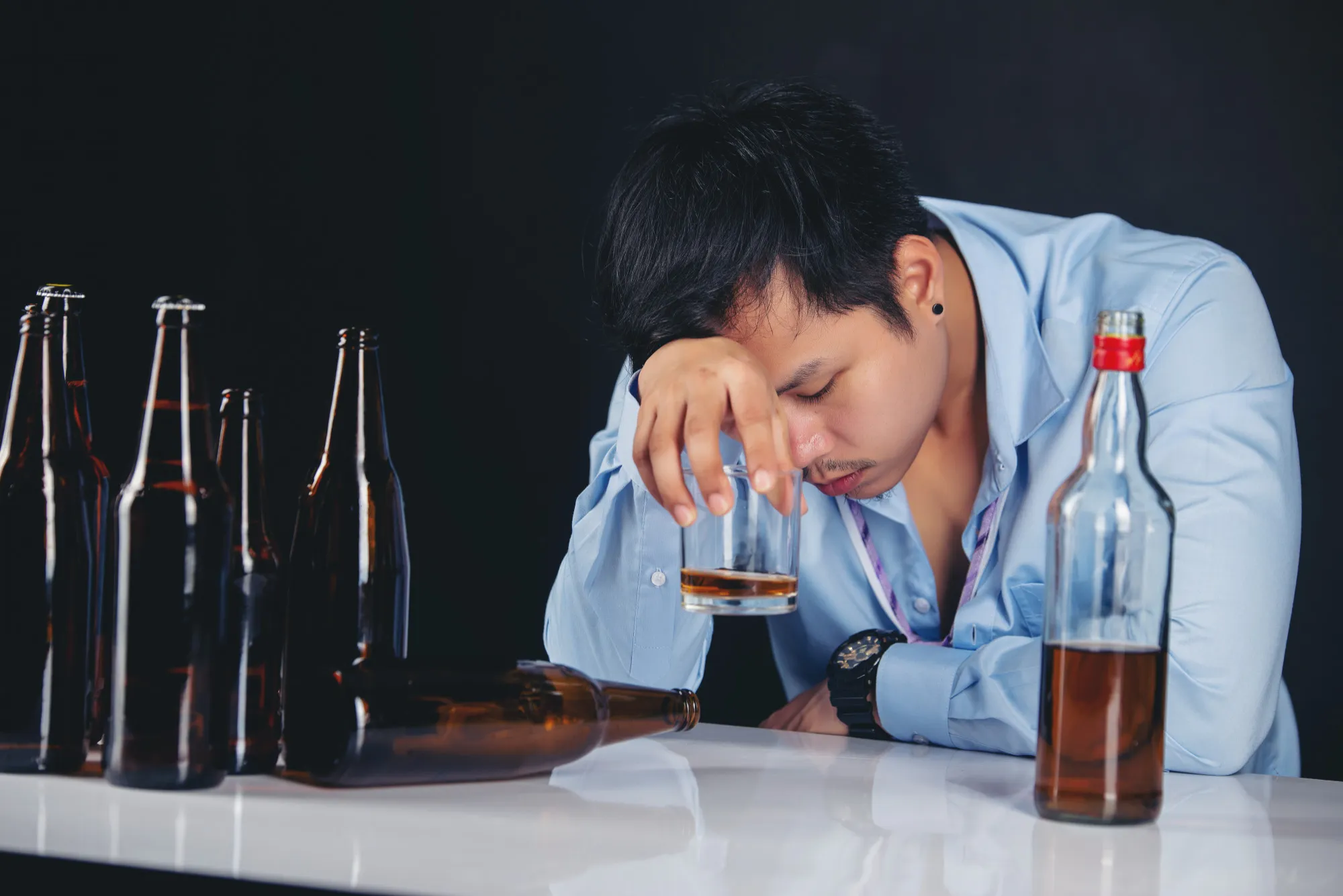Keywords
1. Binge Drinking Risks
2. Alcohol Dependence Study
3. Adolescent Alcohol Consumption
4. Adult Addiction Predictors
5. Alcohol Prevention Strategies
A groundbreaking retrospective case-control study conducted in France has uncovered a chilling link between frequent binge drinking in late adolescence and alcohol dependence in later adulthood. The research, detailed in a publication of BMJ Open, can be found under the DOI: 10.1136/bmjopen-2018-026375, focusing on individuals between the ages of 18 and 25. This study has shed light on critical developmental stages in young adults, influencing proactive public health interventions and paving the way for future policies aimed at curbing alcohol misuse.
The Crossroads of Youth and Alcohol
The study, located within the Department of Addictive Medicine and the Clinical Investigation Center of a French university hospital, engaged 166 adults between the ages of 25 and 45. Comprising 83 alcohol-dependent individuals and an equivalent number of non-dependent controls, the participants were meticulously diagnosed and assessed for alcohol dependence by a psychiatric specialist. The research unfolds against a backdrop of global concerns about youth alcohol consumption, previously documented at http://drees.social-sante.gouv.fr/IMG/pdf/esp2017.pdf and generalized statistics on substance abuse by the WHO (http://apps.who.int/iris/bitstream/10665/112736/1/9789240692763_eng.pdf).
The cases under review were drawn from consecutive patients referred for alcohol dependence to the university hospital between 1 January 2017 and 31 December 2017. The controls, adjudged non-alcohol-dependent by the Alcohol Use Disorders Identification Test (AUDIT) with a score less than 8, were precisely matched by age and sex. Retrospective data harvesting spanned key developmental phases, scrutinizing sociodemographic characteristics, behaviors, and alcohol consumption patterns before 18 years, from 18 to 25 years, and between 25 to 45 years. The frequency of binge drinking episodes between the ages of 18 and 25 was categorized into three distinct cohorts – “frequent” for more than twice a month, “occasional” for once a month, and “never” in the absence of binge drinking events.
Revelations and Red Flags
Findings were stark, highlighting that 75.9% of alcohol-dependent cases had a history of frequent binge drinking between the ages of 18 and 25, as opposed to 41.0% among the controls. Multivariate analysis, controlling for diverse influencing factors, pointed to an adjusted odds ratio (OR)=2.83, with a 95% Confidence Interval (CI) of 1.10 to 7.25, signaling that frequent binge drinking during late adolescence is alarmingly indicative of alcohol dependency in the 25 to 45 age bracket.
An Ominous Predictor
As such, the study extends beyond prior observational research to empirically support the hypothesis that patterns of excessive drinking during critical youthful years can consistently forecast adult alcohol dependence. These results underline the significance of early life conditioning toward substance abuse, echoing the sentiments of past investigations cited at 10.1016/j.addbeh.2006.03.002, 10.1080/07448480209595713, and 10.1016/j.addbeh.2005.05.020. The assertion corroborates the trajectory analyses demonstrated in longitudinal studies, such as those documented at 10.1371/journal.pone.0165514 and 10.1111/j.1360-0443.2005.01034.x, outlining adolescence as a pivotal juncture in establishing sustainable behavioral patterns.
Global Health Implications and Preventive Measures
Considering the long-term detrimental effects of frequent binge drinking, from immediate risks like injuries and fatalities to prolonged issues such as chronic dependency, the investigation amplifies a clarion call for comprehensive prevention strategies. Key recommendations from this French study, now integrated with global alcohol policy recommendations and the insights of public health authorities across various cultural landscapes, entail rigorous preventative action and youth-targeted public health campaigns.
Moreover, complementary approaches to combat youth binge drinking and subsequent dependency risks are showcased in scholarly work like 10.1186/s12889-016-2863-x and 10.1080/08870446.2017.1325889, reinforcing the imperative for preventative engagement. Policy makers and health practitioners must focus on minimizing the allure of alcohol among adolescents and crafting educational initiatives attuned to the societal and cultural nuances influencing alcohol consumption.
Distressed by the augmented risk factors tied to youthful alcohol abuse and inspired by a need to disrupt the cycle of addiction, France’s endeavours in addiction studies exhibit a broader relevance. The outcomes and cautionary guidance from this French study resonate with health agencies worldwide. It is evident that investing in early prevention not only holds the potential to voraciously attenuate immediate health threats but also to defuse the ticking time bombs of adult pathological dependence.
Conclusion
The French study, as documented in BMJ Open with DOI: 10.1136/bmjopen-2018-026375, showcases how critical preventive measures and early interventions can be in altering the life trajectories of young people at risk for alcohol dependence. As the associated data spans across numerous references, from early predictors to adult outcomes (10.1155/2014/930795, 10.1093/eurpub/ckt015, 10.1371/journal.pmed.1000413), it is clear that the problem of binge drinking between the ages of 18 and 25 is not merely one of transient youthful indiscretions. It is, instead, a pressing public health concern with long-lasting implications, warranting immediate attention and action.
